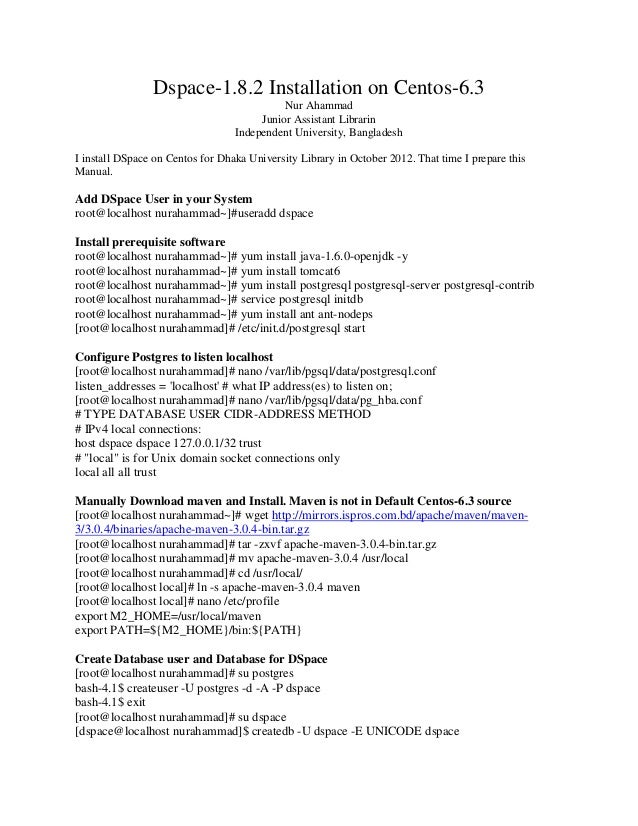Yum Install Ant Without Openjdk 7. Install an RPM Package on. Wkhtmltopdf is an open source simple and much effective command-line shell utility that. Open Source Communities; Subscriptions. Red Hat Customer Portal Labs. Yum install java-1.6.0-openjdk-devel.


You don't say which version of Fedora you're using, which is a crucial piece of information. For Fedora 16, this is in the updates repo, so the command above should work fine; that suggests, though doesn't prove, that you're on an earlier version of Fedora.
I've looked in the updates repo for F15 () and that only has java-1.6.0-openjdk. So it looks like 1.7.0 didn't come out soon enough for F15 to benefit from it (indeed, there was some discussion in the run-up to F16 about whether or how to get 1.7.0 into that release, you can read it if you want to). Java Serialize Collection To Xml Editor on this page. So I definitely don't expect to find 1.7.0 in F14 and earlier, since those versions are now out-of-support. If you're F15, you might be able to benefit from a custom build in someone else's repo, but you'll have to to let us know what version of Fedora you're on.
F14 and earlier, I fear you're simply out of luck - and you need to upgrade anyway. Edit: You're using Fedora 7. Now I can't say for sure that noone's keeping up-to-date packages for F7 in some odd repository somewhere, but it seems extremely unlikely to me. May I repeat my warning that F7 is wildly out of date, and not suitable for deploying anything on in 2012? You can't easily upgrade it now (because modern Fedora won't upgrade anything more than two revs out of date, so you'll have to go 7-9-11-13-15-16); if you decide to stay on Fedora, you need to be resigned to upgrades at least once a year.
Failing that, use a server-class OS - CentOS will be most suitable for you, being a Fedora user, but Ubuntu/Debian/SuSE/etc. All have their long-term support offerings too.
To see what particular versions are available to you via yum you can use the --showduplicates switch. $ yum --showduplicates list httpd expand Loaded plugins: fastestmirror, langpacks, refresh-packagekit Loading mirror speeds from cached hostfile * fedora: mirror.steadfast.net * rpmfusion-free: csc.mcs.sdsmt.edu * rpmfusion-free-updates: csc.mcs.sdsmt.edu * rpmfusion-nonfree: csc.mcs.sdsmt.edu * rpmfusion-nonfree-updates: csc.mcs.sdsmt.edu * updates: mirror.steadfast.net Available Packages httpd.x86_64 2.4.6-6.fc20 fedora httpd.x86_64 2.4.10-1.fc20 updates As far as installing a particular version?
You can append the version info to the name of the package like so: $ sudo yum install - For example in this case if I wanted to install the older version, 2.4.6-6 I'd do the following: $ sudo yum install httpd-2.4.6-6 You can also include the release info when specifying a package. In this case since I'm dealing with Fedora 20 (F20) the release info would be 'fc20', and the architecture info too. $ sudo yum install httpd-2.4. G Lab Gsc 1 Manual. 6-6.fc20 $ sudo yum install httpd-2.4.6-6.fc20.x86_64 repoquery If you're ever unsure that you're constructing the arguments right you can consult with repoquery too. $ sudo yum install yum-utils # (to get `repoquery`) $ repoquery --show-duplicates httpd-2.4* httpd-0:2.4.6-6.fc20.x86_64 httpd-0:2.4.10-1.fc20.x86_64 downloading & installing You can also use one of the following options to download a particular RPM from the web, and then use yum to install it. $ yum --downloadonly -or- $ yumdownloader And then install it like so: $ sudo yum localinstall What if I want to download everything that package X requires?